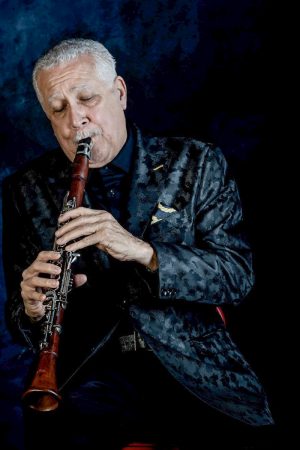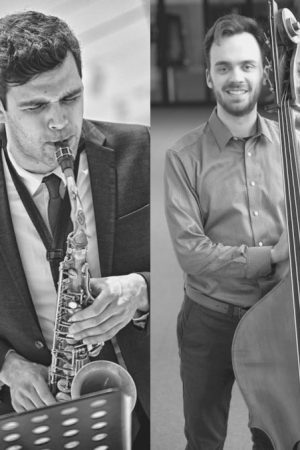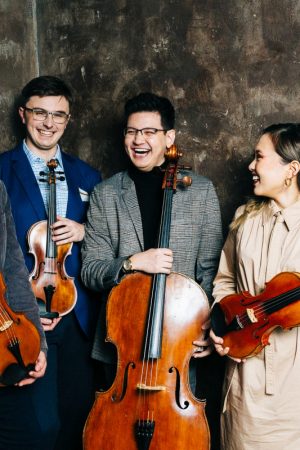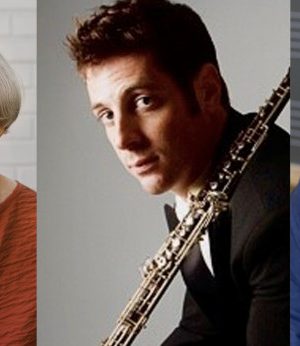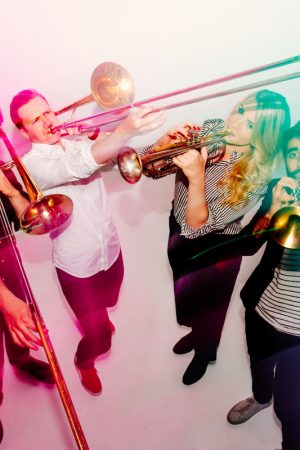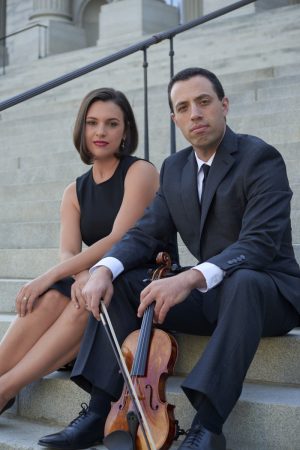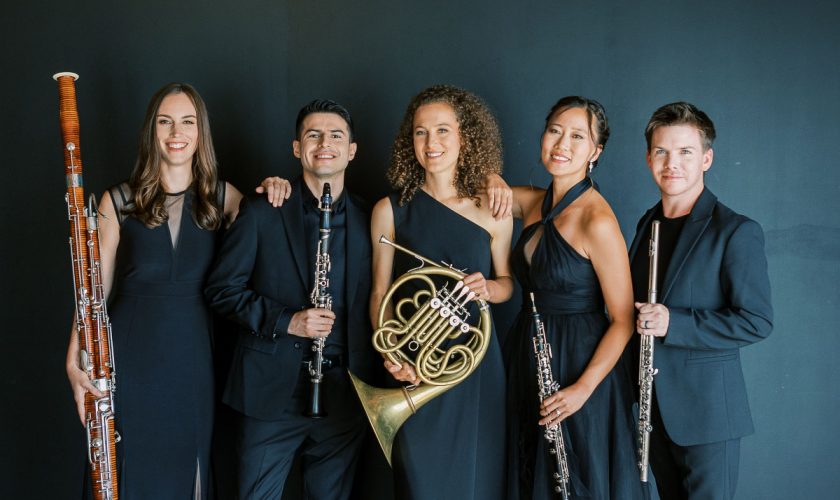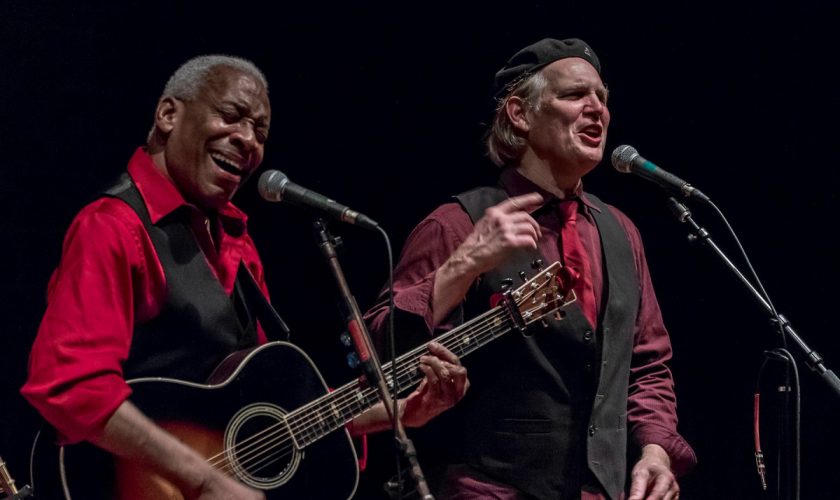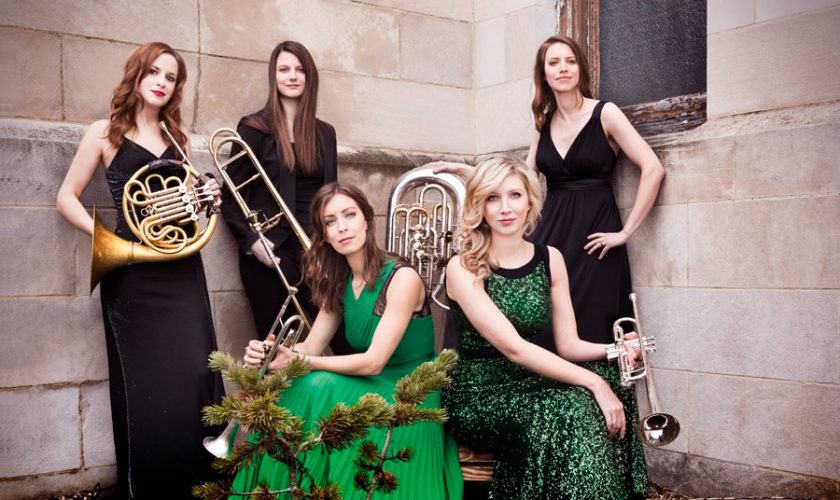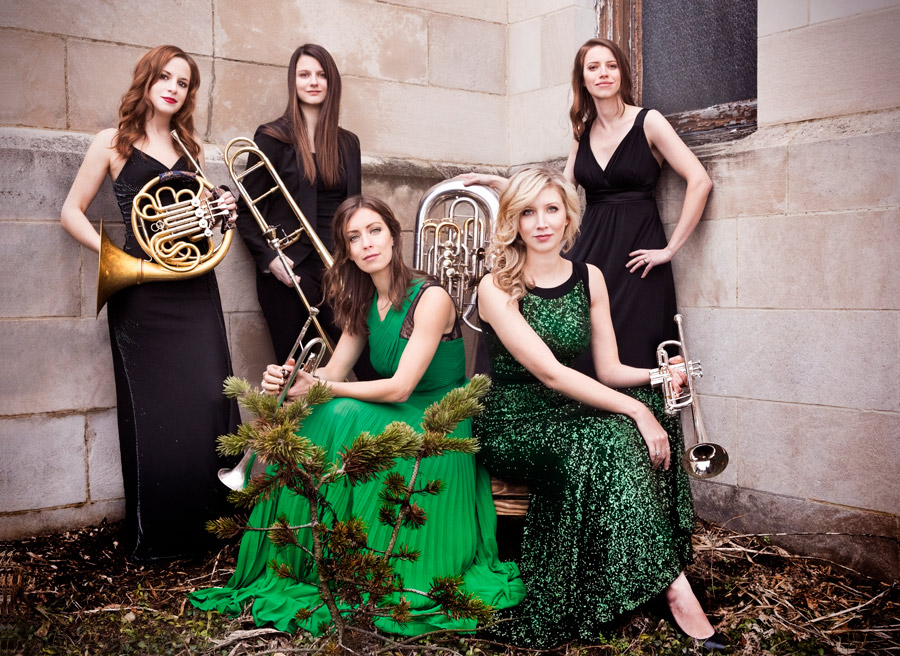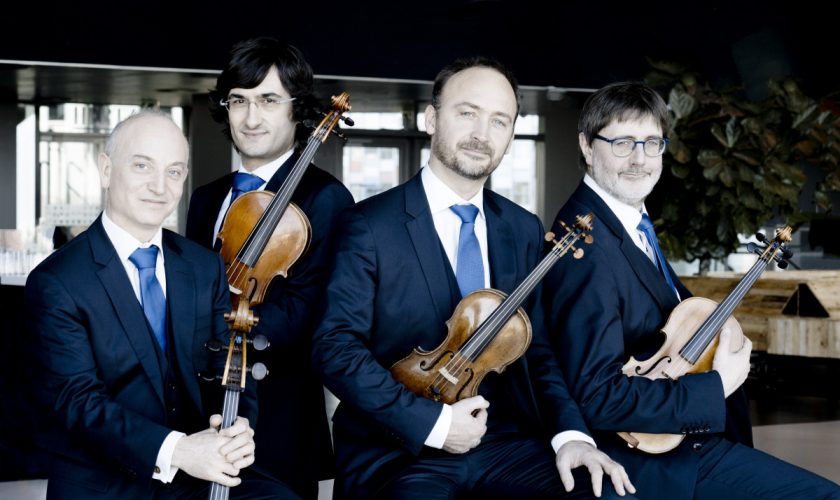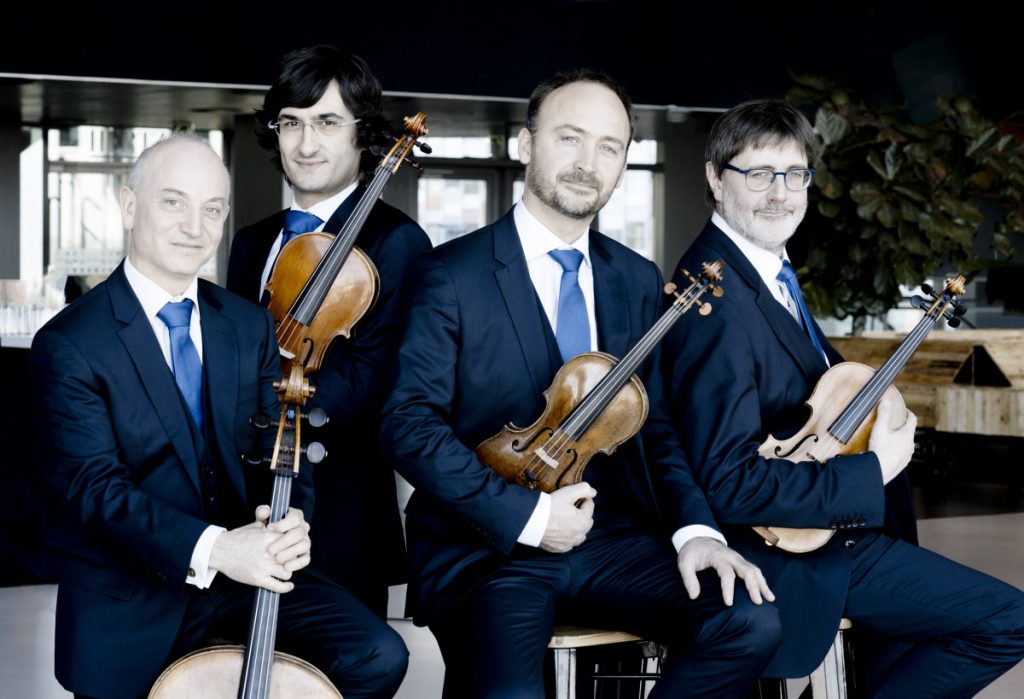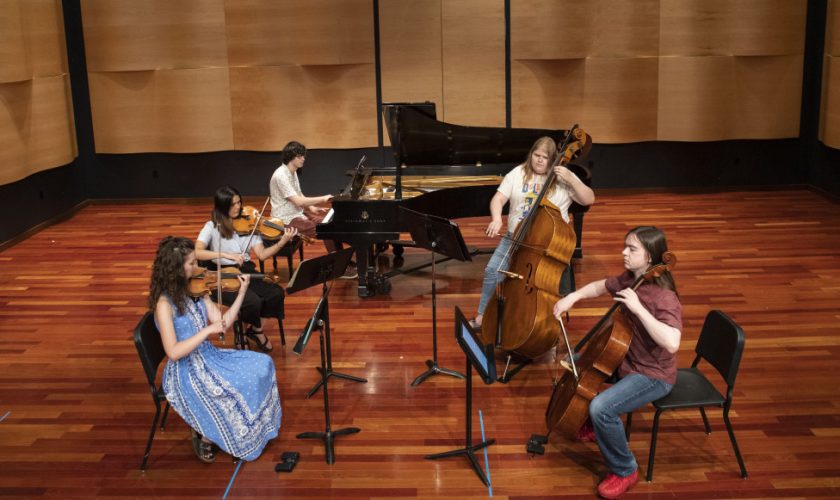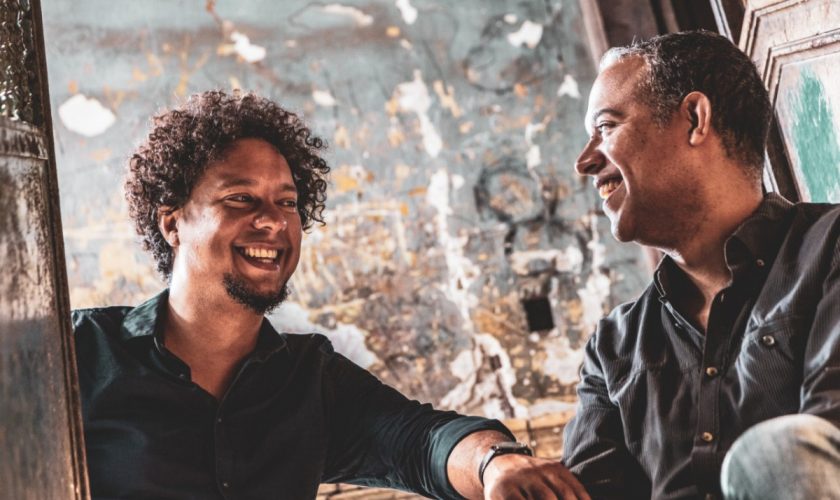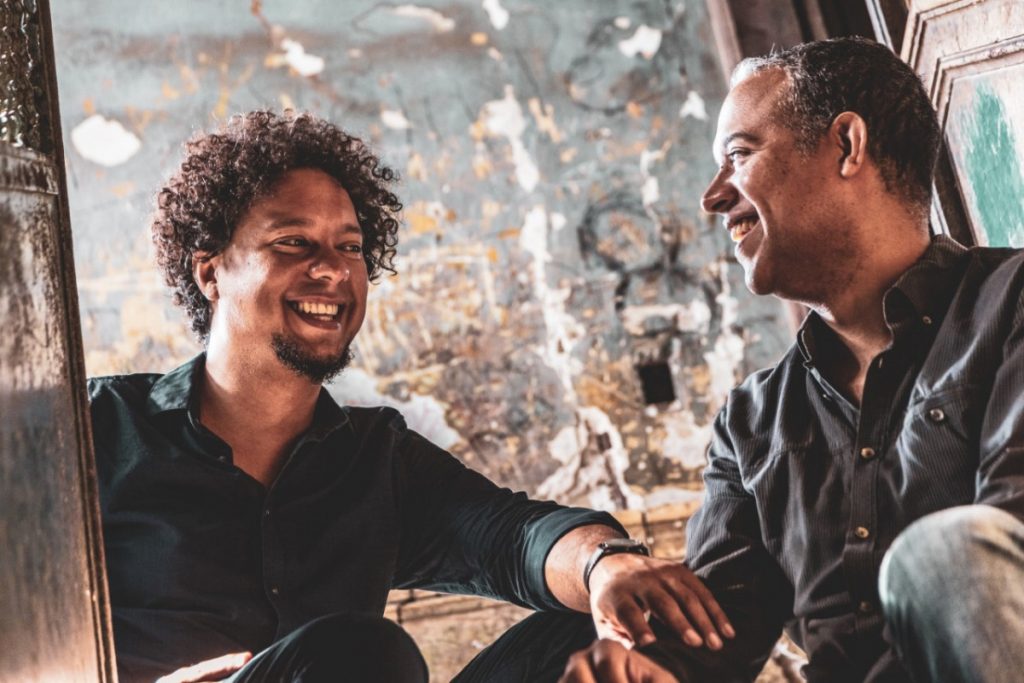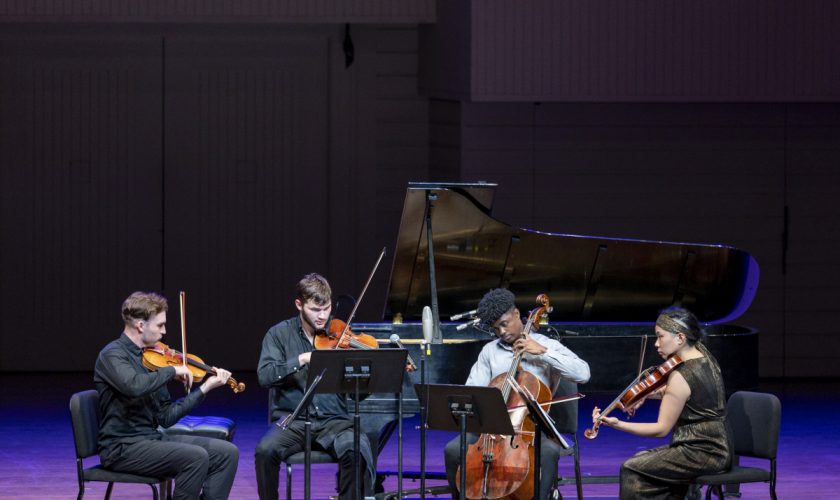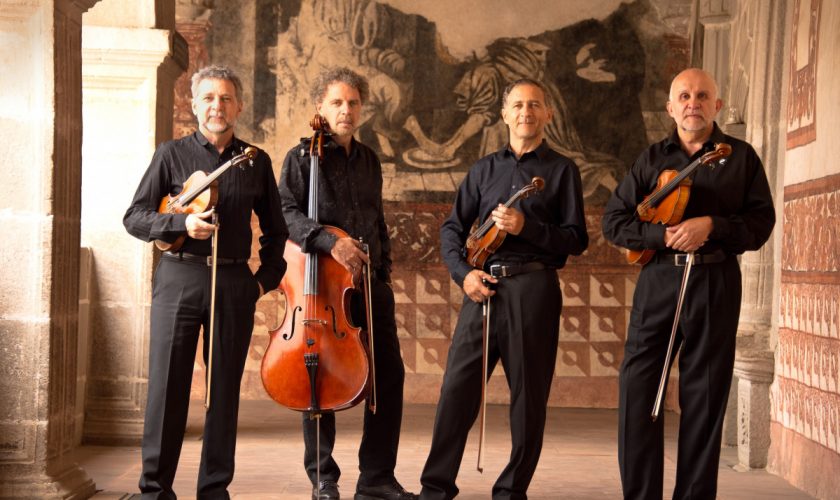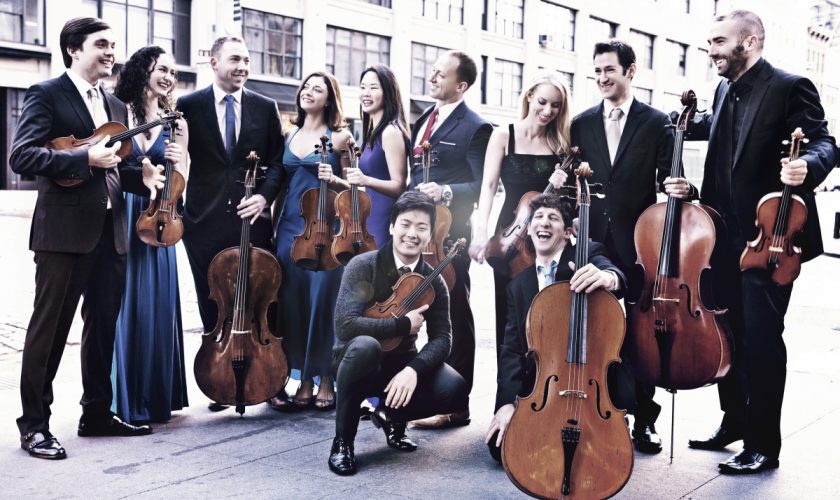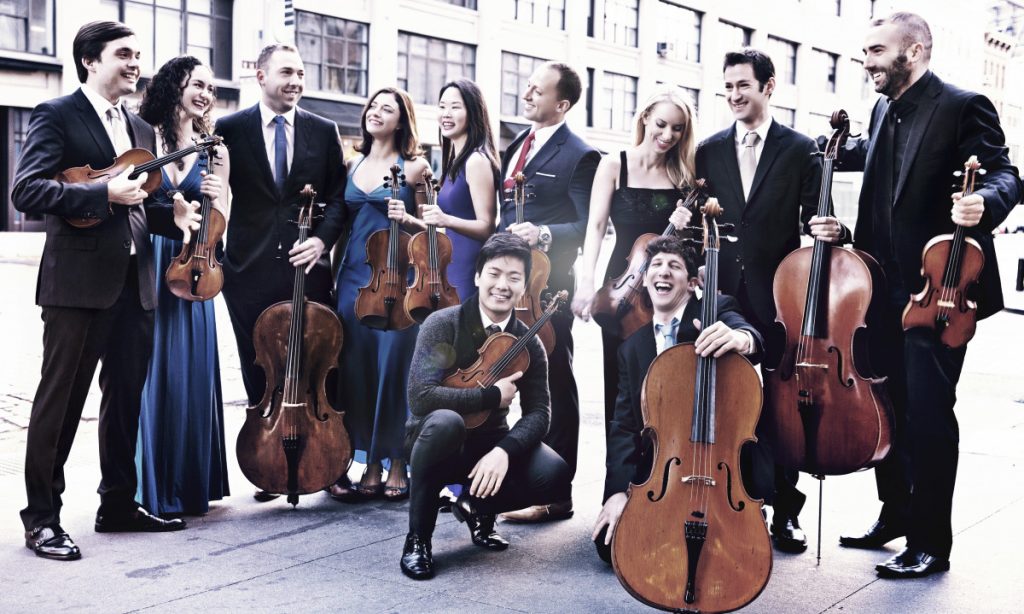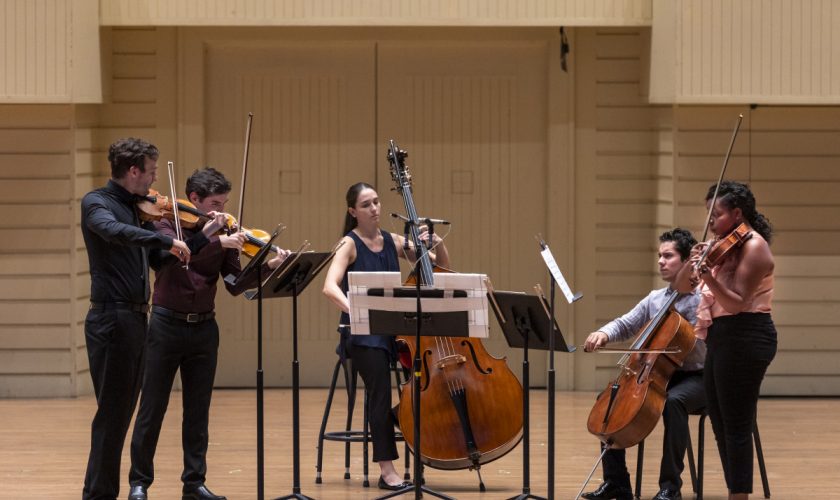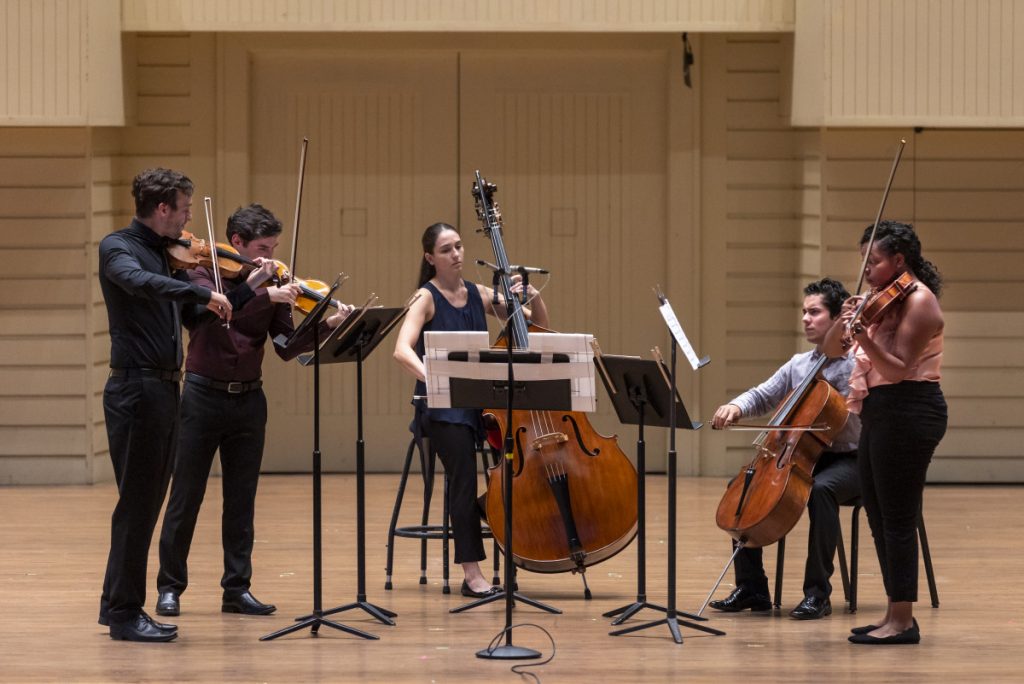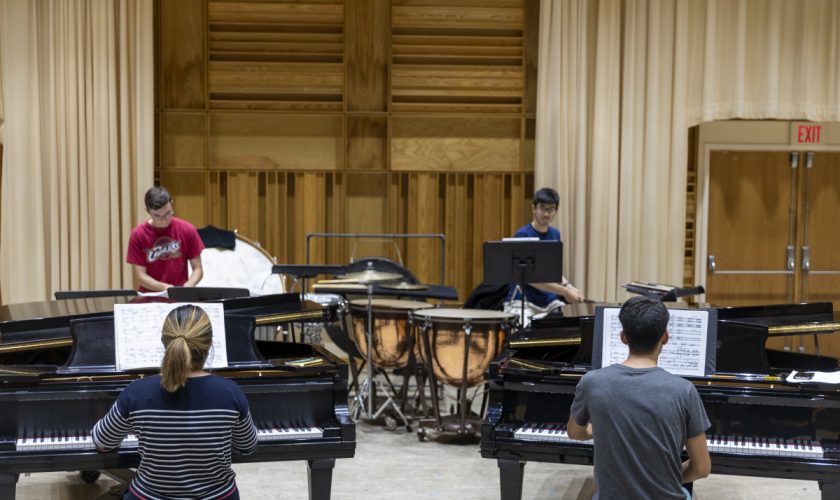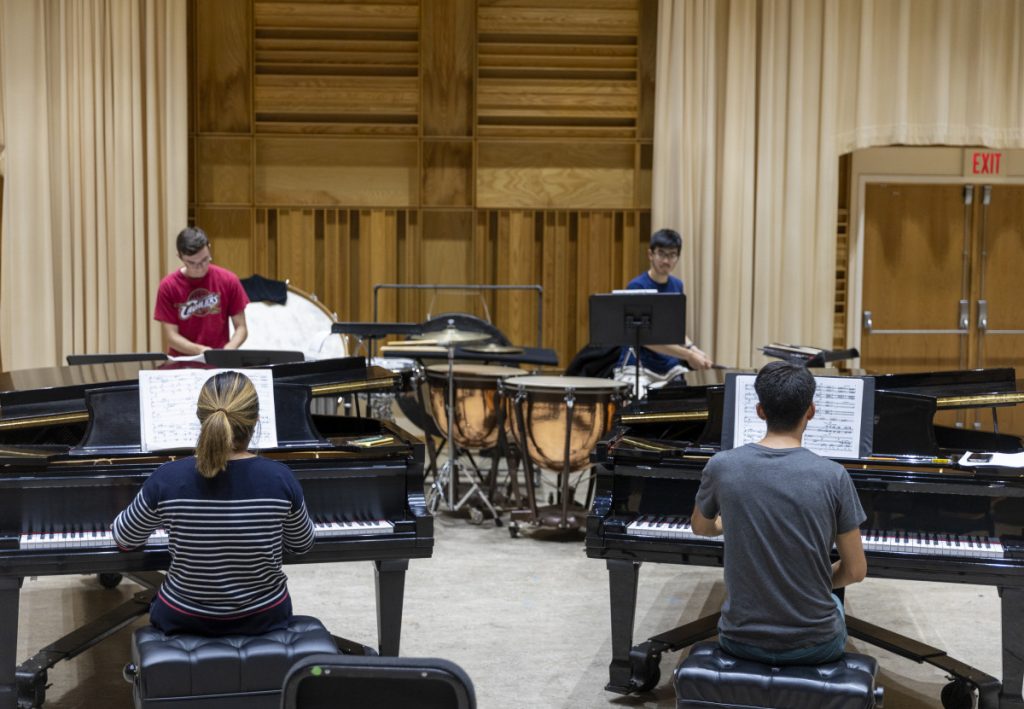With a penchant for breaking the fourth wall while performing wind quintet masterworks, adapting beloved music to their instrumentation, and championing new works by contemporary composers, WindSync is bringing a vibrant, personal style to the first recital in the 2023 Chautauqua Chamber Music Guest Artist Series.
At 4 p.m. today in Elizabeth S. Lenna Hall, flutist Garrett Hudson, oboist Emily Tsai, clarinetist Graeme Steele Johnson, bassoonist Kara LaMoure, and French horn player Anni Hochhalter — the musicians who make up the ensemble — will bring their personal performance style to Chautauqua.
WindSync first came on the scene in 2012 when the group won that year’s Concert Artists Guild’s Victor Elmaleh Competition. An international touring career followed, and Kimberly Schuette’s been tracking their career ever since.
“The program they’re bringing to us highlights exactly what they do best and most uniquely: arrangements for winds of canonical repertoire done with reverence, set alongside new commissions from the rising composers of their generation,” she said. “WindSync is a wonderful start to our 2023 chamber music series.”
The program for WindSync’s afternoon recital includes the quintet’s arrangement of Ravel’s “Bolero” and George Gershwin’s “Summertime,” as well as Rameau’s Pastoral Suite, Miguel del Aguila’s Sambeada, and Marc Mellits’ Apollo.
Medalists at the 2018, M-Prize Chamber Arts Competition, WindSync has appeared in recital at the Met Museum, Ravinia, Shanghai Oriental Arts Center, and Weill Recital Hall at Carnegie Hall. The ensemble performed the world premiere of Paul Lansky’s “The Long and the Short of it,” commissioned by the Carolyn Royall Just Fund and the Chamber Music Society of Lincoln Center, at the Library of Congress in 2015. Other premieres include Pulitzer finalist Michael Gilbertson’s “The Cosmos,” and works by Ivan Trevino, John Steinmetz, Marc Mellits, Erberk Eryilmaz, and Akshaya Avril Tucker. Forthcoming commissions include new works for wind quintet by Mason Bynes, Viet Cuong, and Nathalie Joachim.
Schuette, who is managing director of the Chautauqua Symphony Orchestra and manager of artistic administration for the Department of Performing and Visual Arts, also plays a key role in chamber programming. There’s much to look forward to this summer, she said, and WindSync is just the start.
“I am very proud of the guest artists we are bringing to the Monday afternoon chamber music series. It’s an exciting lineup of both established and emerging ensembles, and both beloved classic chamber music and works by 20th-century and living composers,” she said. “WindSync, Brooklyn Rider, Borromeo String Quartet, and the Westerlies are playing on the most revered chamber music series across the nation and we’re so fortunate to see them at Chautauqua this summer.”

